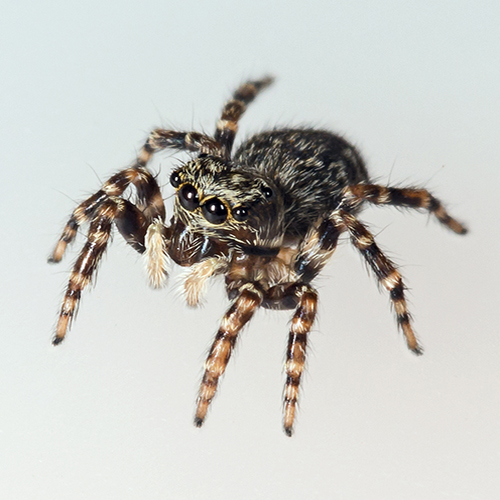
Spider Myth Resources
Explore even more! Additional spider resources and more myths (poor spiders can't catch a break!).
Fact: There is still no solid evidence of any spider causing an infection in human tissues by its bite. However, since this section was first written, a study by C.L.B. Monteiro and others of the Brazilian recluse spider, Loxosceles intermedia, found bacteria, including the gangrene-causing Clostridium perfringens, on the fangs of 36% of the spiders studied and 16% of venom samples passed through the fangs, though venom taken direct from the venom glands was sterile. These results have yet to be repeated with any North American spider. Recent research by J. Sandidge suggested that Loxosceles reclusa (the brown recluse of south-central USA) prefers already-dead insects to prey it kills itself; this would greatly increase the chance of recluse spiders' fangs being contaminated. However, the scavenging conclusion was recently questioned.
Recluse spiders are not found in most areas, and there is no reason to think a typical spider could cause infection by its bite. A 2006 study found potentially infectious microbes on only one of 100 house spiders tested. A 2011 study of hobo spiders in particular had similar results. To be sure, a spider bite punctures the skin and the punctures could become infected later. To prevent this, simply disinfect it the same way you would disinfect any scratch or puncture.
Many uninformed physicians routinely treat the open sores caused by recluse spider bites as if they were infections, and give the patients antibiotics. The effect of these bites is not caused by infection, but by the venom directly attacking the tiny blood vessels in the tissue. In true spider bite cases, antibiotics are generally worthless, and real bite victims being so treated would be well advised to seek doctors who know more about their condition. However, the Monteiro results mentioned above suggest that unusually severe spider bite lesions should be tested for Clostridium, and if positive, treated with appropriate antibiotics. Perhaps more to the point, a large proportion of alleged "spider bites" are actually infections (often antibiotic-resistant MRSA) and not bites at all.
Information on this web site is not a substitute for professional medical advice, and should not be used to diagnose or treat a medical or health condition. You should consult a physician as to any symptoms that may require diagnosis or treatment. Genuine spider bites can sometimes require medical attention, but beyond that, several medical conditions commonly mistaken for spider bite can be even more serious. If you have what appears to be a serious spider bite, please contact your health care provider or local emergency services. If you have the actual spider that bit someone, always save it for identification by a professional arachnologist.

Explore even more! Additional spider resources and more myths (poor spiders can't catch a break!).